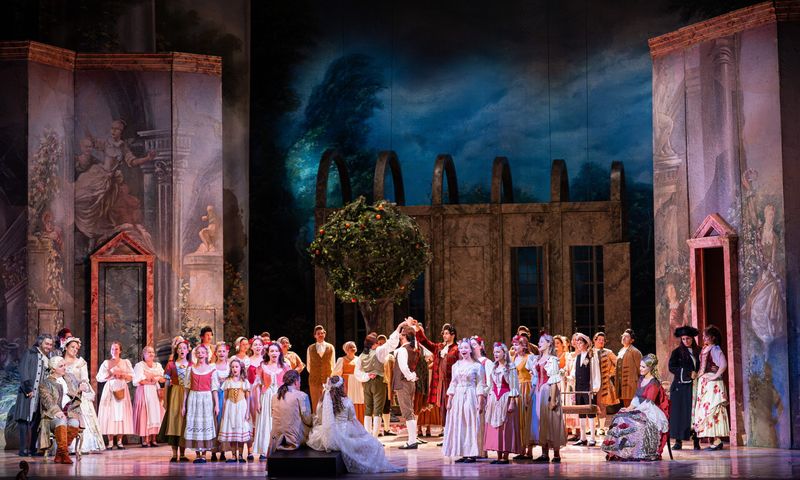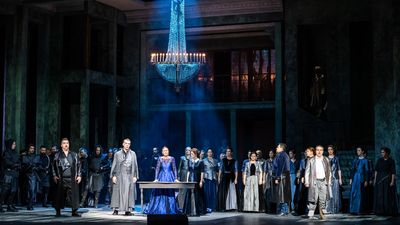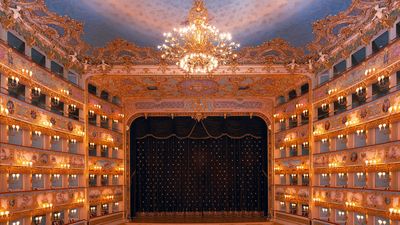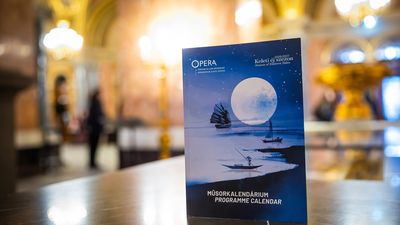
Following the sold-out summer series, the Hungarian State Opera opens its 2025/26 season with Mozart’s comic opera Le nozze di Figaro. Born from a once-banned scandalous play, the popular opera is presented between 13 and 21 September, in five performances, providing the opportunity for several exciting debuts.
What should a servant do if his master makes advances towards his fiancée? How can a wife, fearing her husband’s infidelity, contrive to make him, frothing with jealousy, desire her still? What comes of a mistress and her servant exchanging clothes for an evening, and how does a singer play a breeches role when the boy she portrays is disguised as a girl? All these questions are answered for those who see Mozart’s Le nozze di Figaro, one of the most famous works in the operatic repertoire.
Beaumarchais’s continuation of The Barber of Seville caused such a scandal with its critique of the aristocratic order before the French Revolution that several rulers banned its performance. Mozart and his librettist Da Ponte, however, circumvented the ban by adapting it into an opera, which achieved great success. Its popularity remains unbroken worldwide today, making it an indispensable part of the core repertoire.
The season-opening production of the Hungarian State Opera features a double cast of exceptional talents. In the role of Count Almaviva, audiences will see, alongside the recently debuted Károly Szemerédy, Gyula Orendt, a member of the Berlin State Opera born in Sfântu Gheorghe, who returns to the OPERA after nearly a decade. Orendt has sung the Count at the Glyndebourne and Aix-en-Provence Festivals as well as in Barcelona, Berlin, and Düsseldorf. Figaro will be portrayed by Bence Pataki, who also debuted this summer, and Csaba Sándor, appearing at the Opera House for the first time in this role after having performed Count Almaviva in the summer. He has previously sung the crafty servant in Bucharest and Cluj. Other principal roles will be performed by young artists who triumphed in the summer casts: Natália Tuznik and Andrea Brassói-Jőrös (Countess), Boglárka Brindás and Rita Rácz (Susanna). Making their debuts in this production are Anna Csenge Fürjes (Marcellina), András Kiss (Bartolo), and Opera Studio member Vivienne Ortan (Cherubino), partnered with such experienced performers as Mária Farkasréti, István Rácz, and Zsófia Kálnay. Also new to the cast are Opera Studio member Botond Pál (Don Curzio), Attila Erdős (Basilio), and Boldizsár Zajkás (Antonio), alongside Opera Studio’s Anija Lombard (Barbarina), who already appeared in the summer. The Hungarian State Opera Orchestra, Chorus (chorus director: Gábor Csiki), and Children’s Chorus (chorus director: Nikolett Hajzer) are conducted by Gergely Vajda. Currently Music Director of the Huntsville Symphony Orchestra in Alabama and Principal Conductor of the Savaria Symphony Orchestra in Szombathely, Vajda will conduct Mozart’s masterpiece for the first time in his more than 25-year career. The dance interlude (choreography by András Nádasdy) features students of the Hungarian National Ballet Institute.
Presented in Judit Galgóczy’s evergreen 1997 staging, with rococo sets and costumes by Attila Csikós and Nelly Vágó, the production will be seen only this once in the season, following the dress rehearsal on 12 September 2025, with five performances on 13, 18, 19, 20, and 21 September at the Hungarian State Opera.
Photo by Valter Berecz


